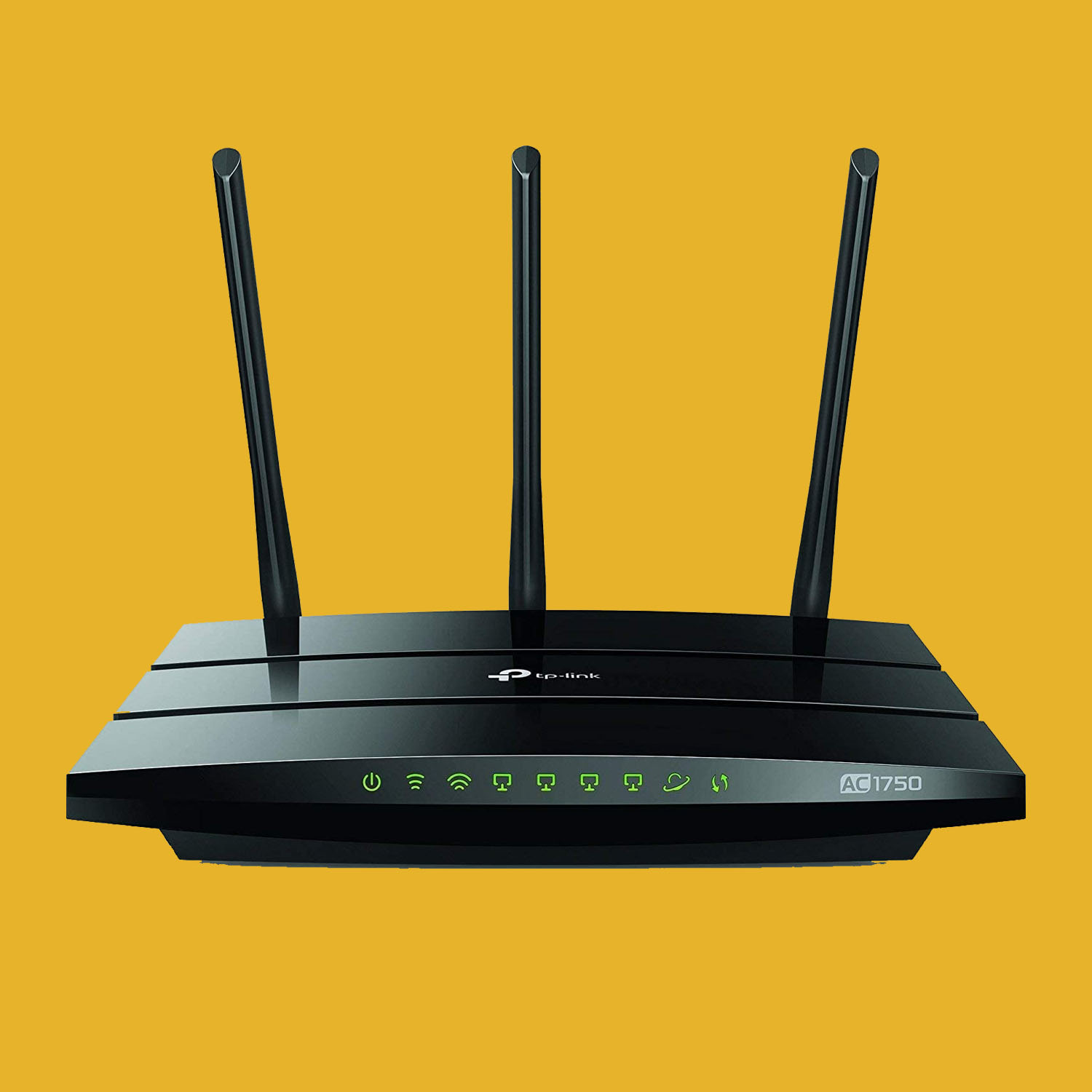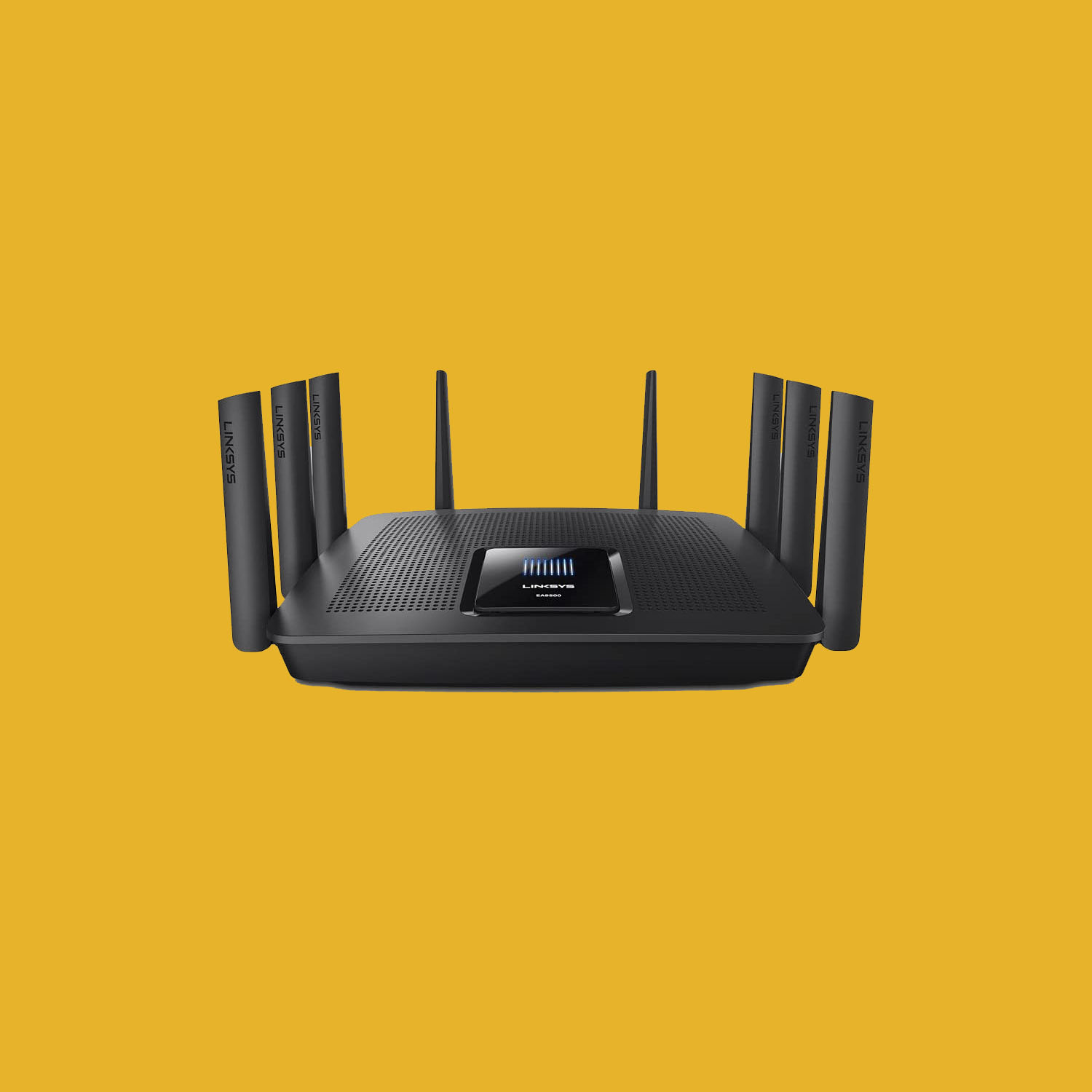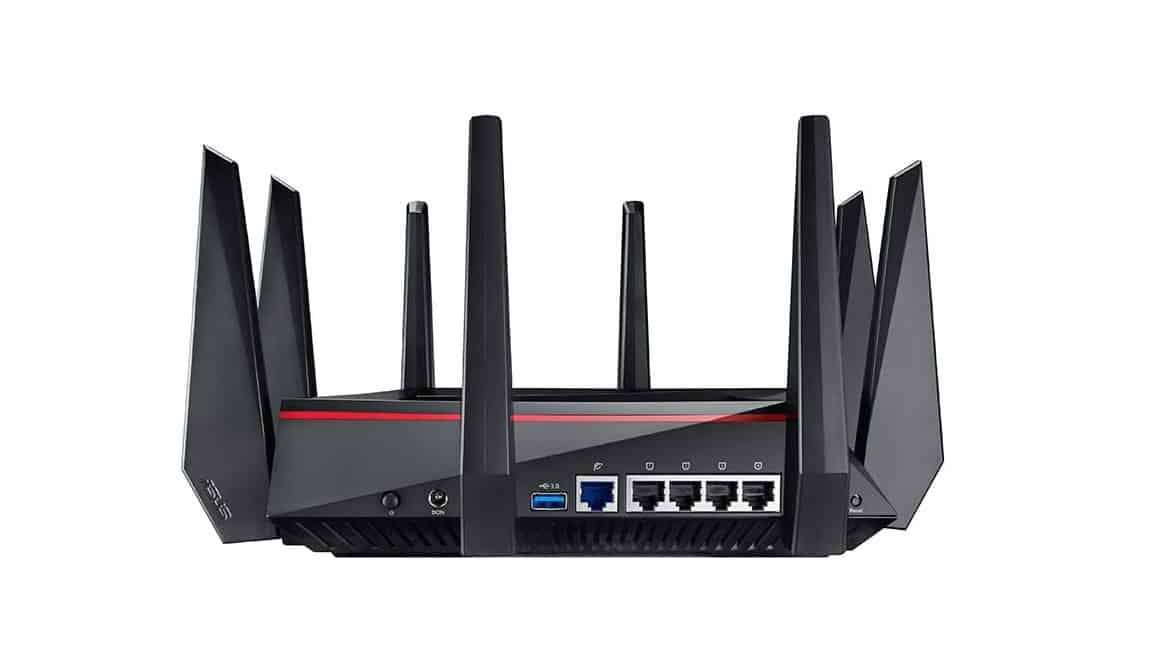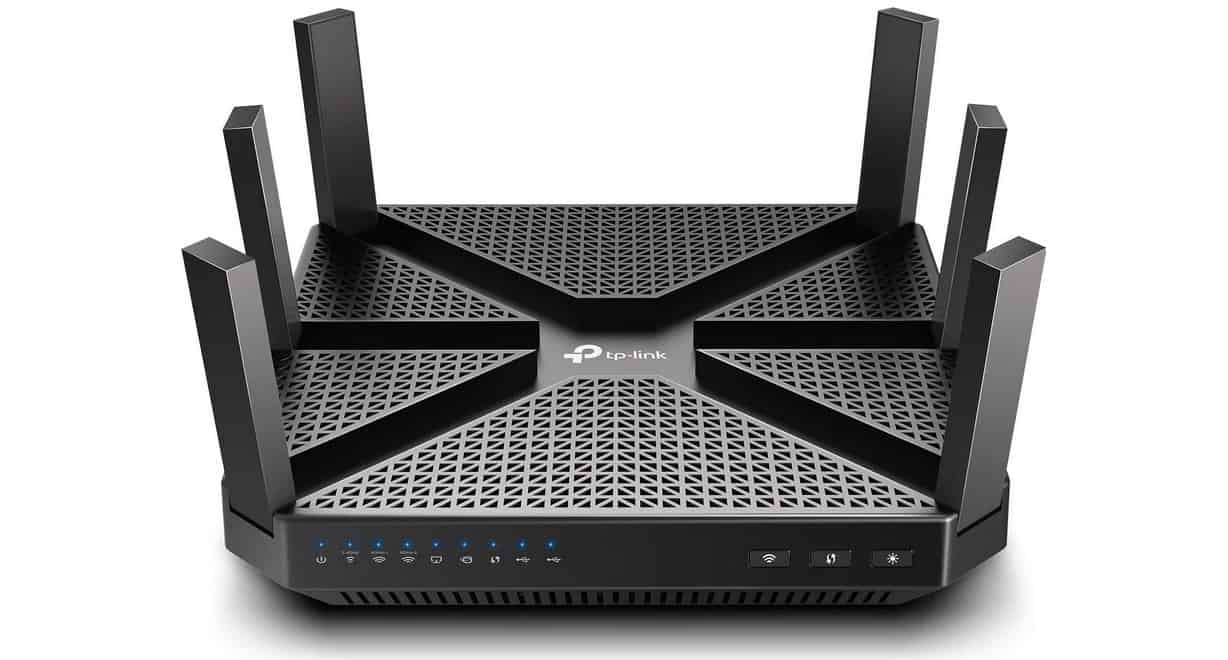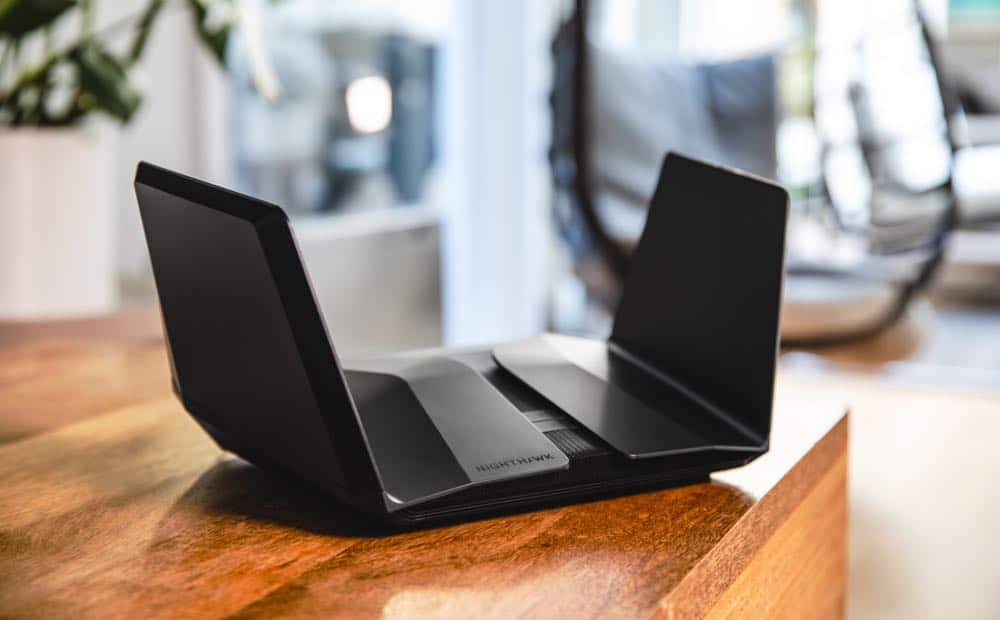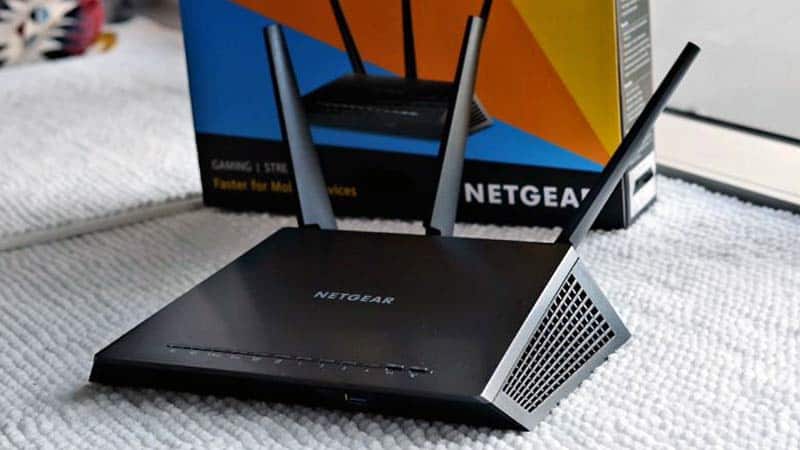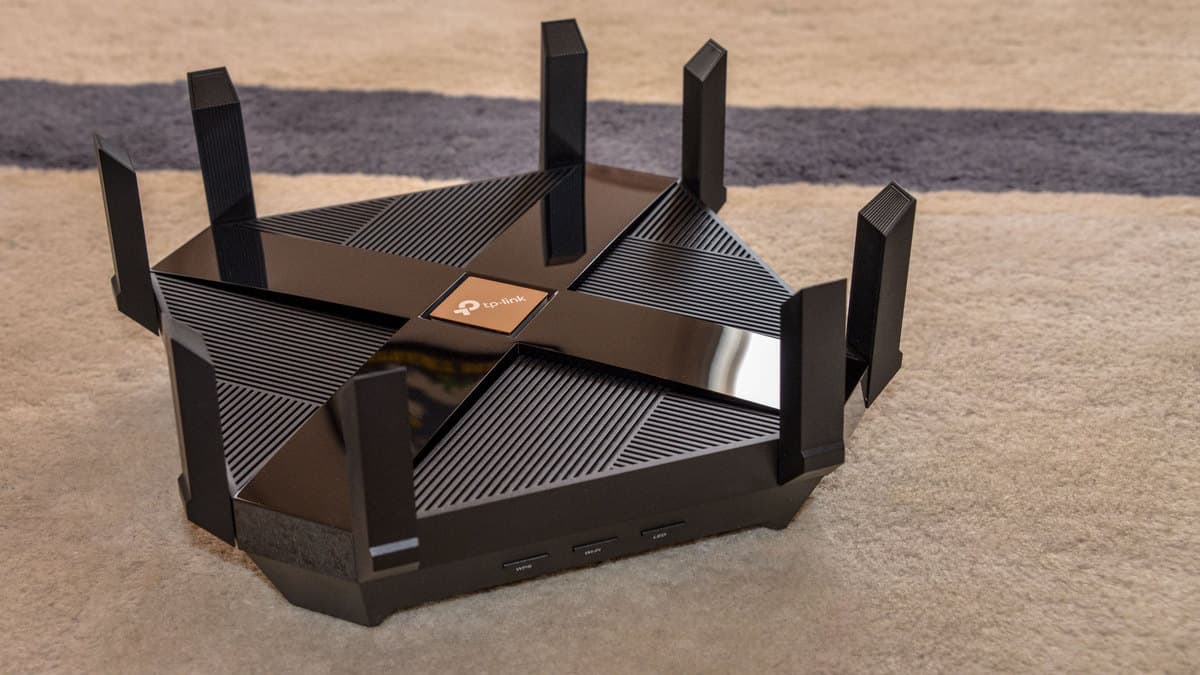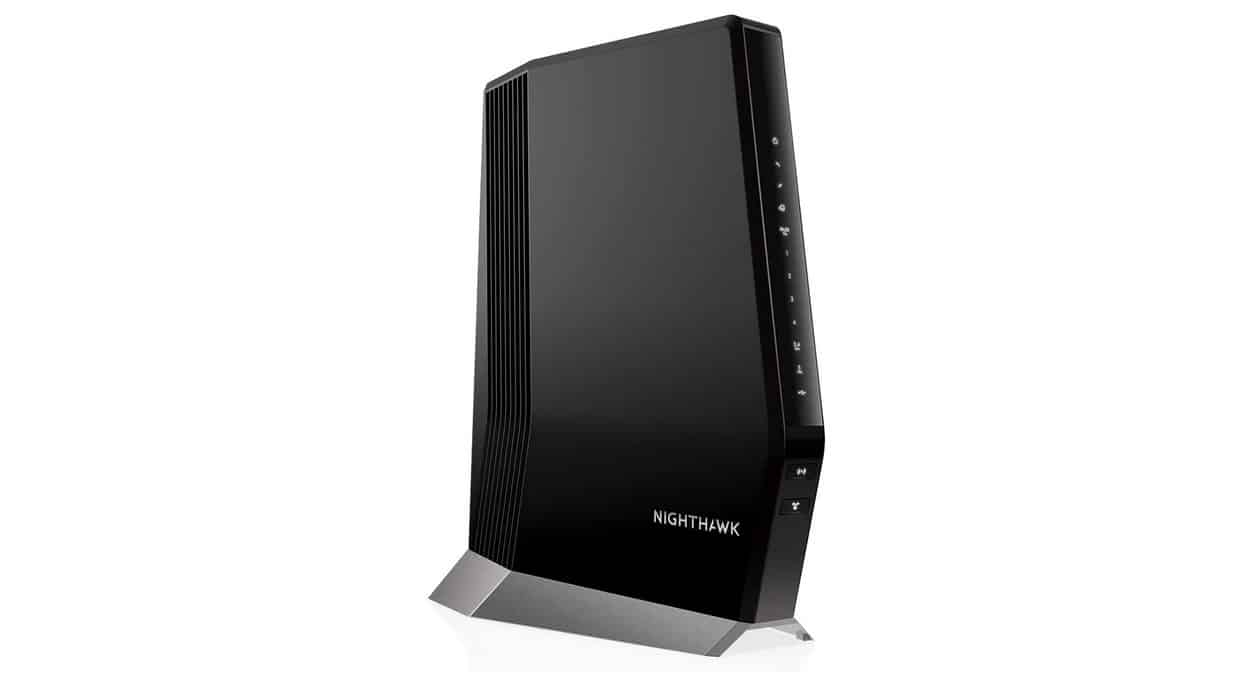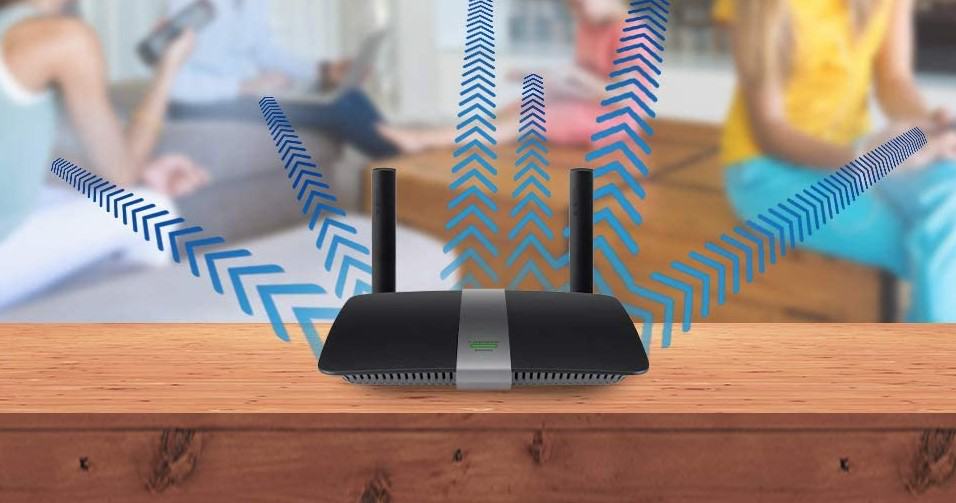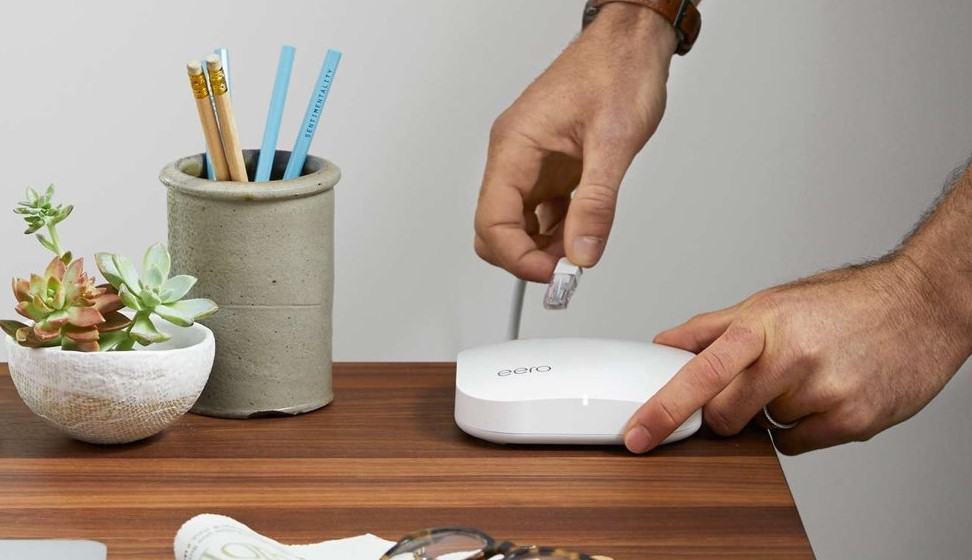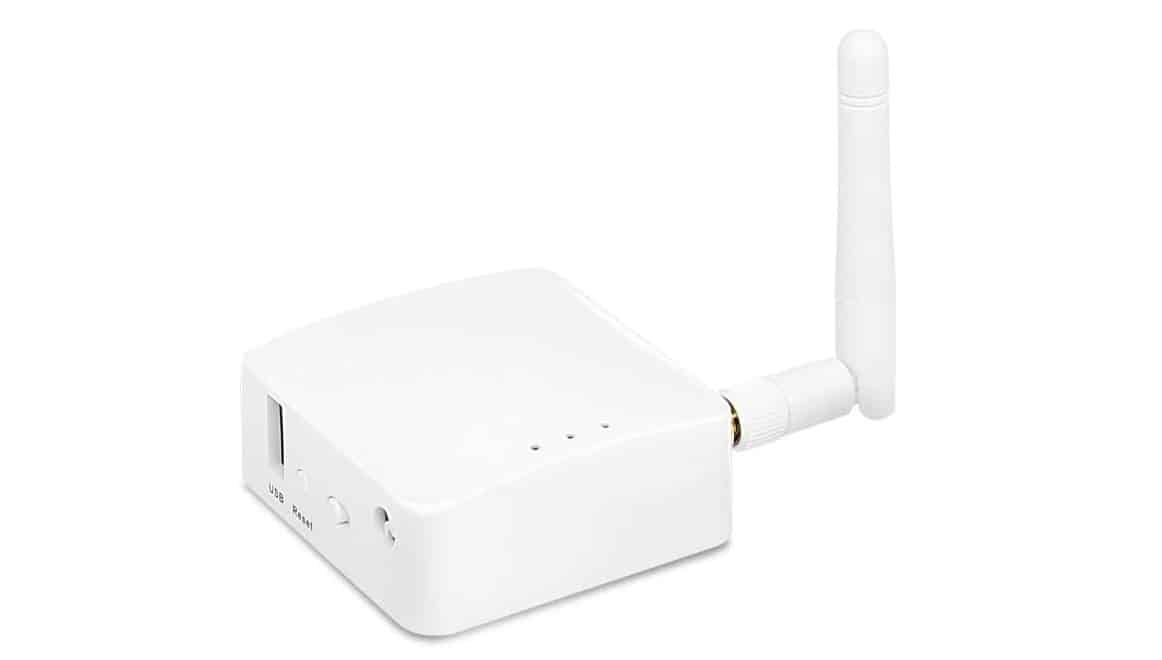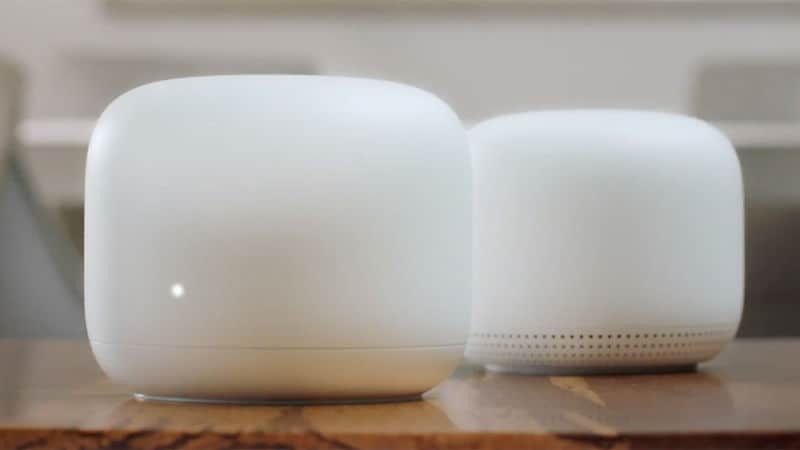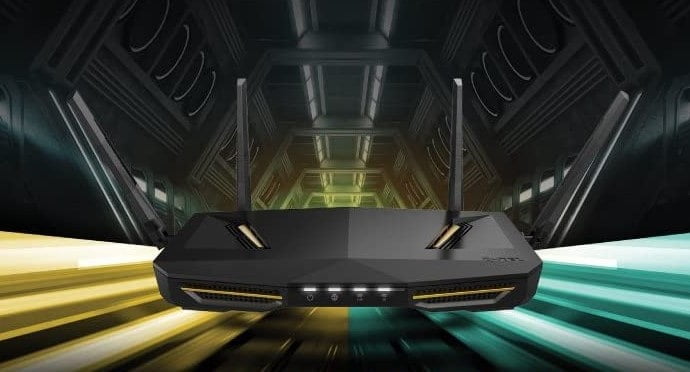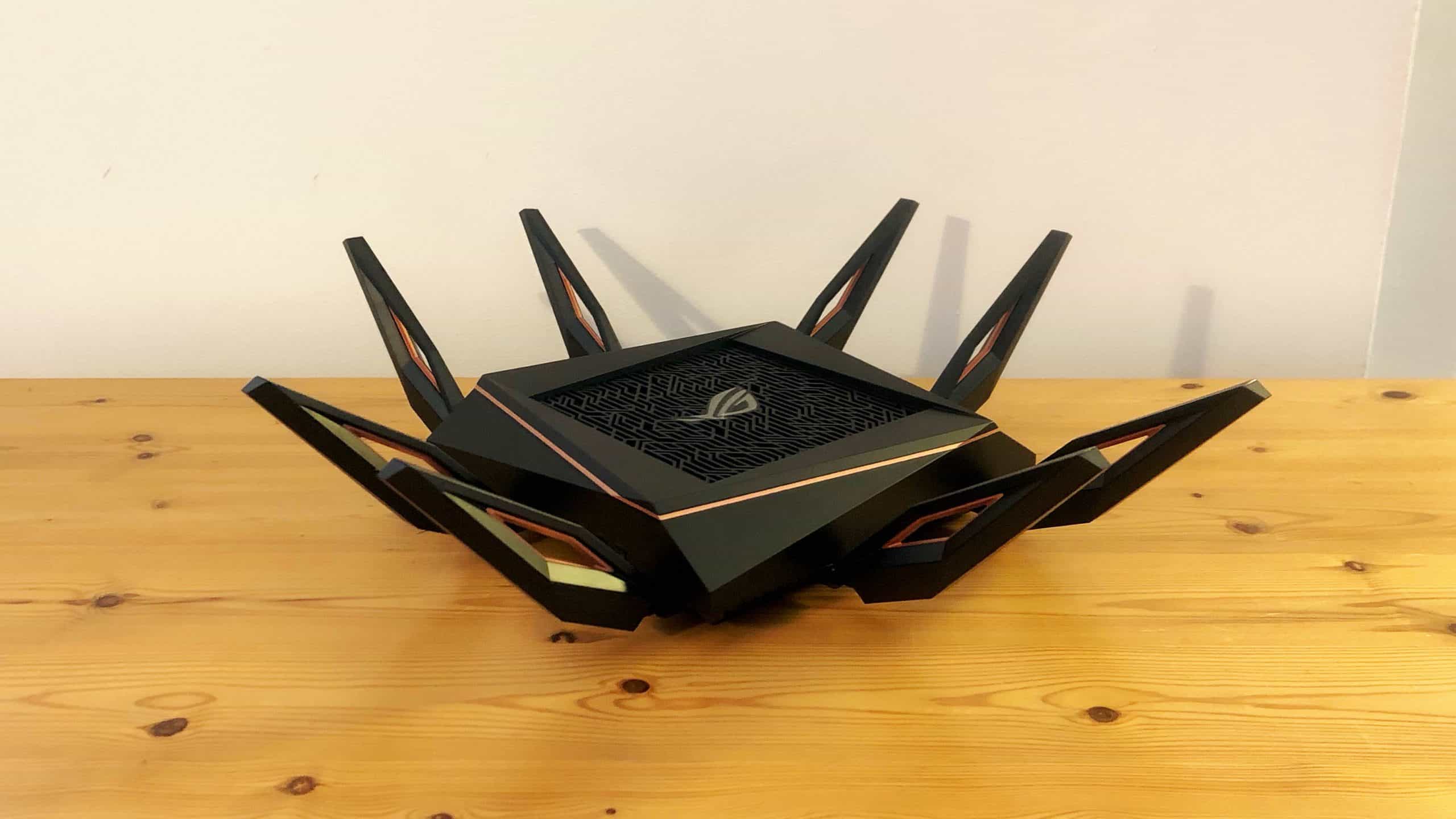If you’re looking for the best wifi router for multiple devices, you likely have a house full of internet users with various devices each. Wifi routers for multiple devices provide seamless coverage for a large area and can handle many devices at once. In addition, they’re easy to set up and come with features like parental controls, security settings, and large ranges.
For people who have multiple computers and cell phones or parents of teenagers who need some extra monitoring, a wifi router for multiple devices is one of the best routers you can buy because it provides increased usability and peace of mind.
Keep reading our buying guide for more information about wifi routers for multiple devices.
Top WiFi Router for Multiple Devices
#1 Netgear 4-Stream WiFi 6 (R6700AX) AX1800 Router
Award: TOP PICK
WHY WE LIKE IT: It covers a large area and comes with four Ethernet ports for wired connectivity. It can handle up to 20 connected devices and be remotely managed through the Nighthawk app.
- Has great range
- Can be remotely managed through the Nighthawk app
- Supports voice control
- No USB ports
The Netgear R6700AX is a 4-stream WiFi 6 router that supports speeds of up to 1.8gbps and operates on a dual-band frequency class. The router’s coverage spans over 1500 sq ft, and since it also features four Gigabit Ethernet ports, the wired devices that will get connected to the router will also be able to transfer data at a rate of 1gbps. The router can support up to 20 multiple devices at once, and owners will also be able to switch between its dual-band frequency classes depending on what kind of work they need to get done. However, it does not feature any USB ports.
Users will also be able to control this router by voice, but they would need to have downloaded the Nighthawk app to set this up and integrate it with Google Home or Amazon Alexa. The app also comes with features such as parental control and speed testing and allows for remote management of the router and WiFi network. The router’s Beamforming technology also helps maintain strong signal strength among all connected devices.
#2 TP-Link Archer AX6000 8-Stream Wireless WiFi Router
Award: HONORABLE MENTION
WHY WE LIKE IT: It has eight Ethernet and two USB ports for wired connectivity and supports voice control. Its got a powerful processor and a very high data transfer rate for speedy connections.
- Great for wired connections
- Very fast data transfer rate
- Works with all ISPs
- No way to disable Quality of Service settings
The Archer AX6000 from TP-Link is a very popular 8-stream wireless router that supports voice control through Alexa or Google Home and boasts a rapid data transfer rate of up to 5952mbps. The router is perfect for users whose work or use involves heavy Internet traffic, and since it features eight high-gain antennas, it can relay a strong WiFi signal throughout the household. A powerful 1.8GHz quad-core CPU backs the router for efficient functioning, but some might not appreciate that there’s no way to disable its Quality of Service settings.
This router is perfect for users who need to make many wired connections since it features 8 Gigabit LAN ports and two USB ports. It also comes with a lifetime subscription to TP-Link HomeCare, which is a suite of features that includes parental controls, antivirus, and active content filtering to prevent access to inappropriate sites. Through the app, users will also be able to set up guest networks for one-time connections, and since the router also supports MU-MIMO technology, all connected devices will have the same level of high-speed connectivity regardless of data traffic.
#3 LinkSys EA7300 Max-Stream AC1750 Dual-Band WiFi Router
Award: BEST FOR HOME USE
WHY WE LIKE IT: It supports high-speed connectivity thanks to a high data transfer rate and also has an excellent range. It can handle up to ten connected-devices, making it ideal for use in a home setting.
- Rapid data transfer rate
- Great range
- Supports up to 10 simultaneously connected devices
- No support for Internet accessible file sharing
The Linksys EA7300 is a dual-band WiFi router that can support up to 10 devices concurrently and has a range of up to 1500 sq ft. The router also offers a pretty fast data transfer rate, averaging 1.7gbps. This means users will be able to enjoy 4K HD streaming and lag-free online gaming provided their Internet connection is also up to par. The router also features MU-MIMO technology to provide WiFi to multiple users at the same high speed regardless of data traffic. However, some might not like that the router does not support Internet-accessible file sharing.
The router also features Beamforming technology that allows it to beam out a signal focused on the direction in which its connected devices are situated. The router also features four Ethernet ports for wired connections and can be quickly set up through the LinkSys app. After installation, users will also be able to use the app to prioritize connected devices, set up parental controls, and configure guest access for one-time connections.
#4 RockSpace AC2100 WiFi Router
Award: BEST FOR MULTIPLE DEVICE CONNECTIONS
WHY WE LIKE IT: It can support up to 60 device connections and covers up to 1300 sq ft. The router allows for remote management through an app and has a relatively high rate of connectivity.
- Great for multiple devices
- Has decent range
- Comes with good security features
- Set up is not plug and play
The Rockspace AC2100 dual-band WiFi router is perfect for heavy-duty users thanks to a data transfer speed of up to 2300mbs and the use of advanced MU-MIMO technology that allows it to handle up to 60 simultaneous connections. The dual-band router also has a decent range of up to 1300 sq ft, and since it also comes with a dual-core processor, it can handle multiple connections without heating up. Still, some may not appreciate that its setup is not plug-and-play.
The router’s use of Beamforming technology is crucial because it means it can lock into a particular device and maintain a stronger connection. Since it also features four Gigabit Ethernet ports, owners can also be assured of rapid wired connections. For added security, the router also features advanced WPA and WPA-2 protocols, as well as firewalls that prevent any kind of attacks or hacking.
#5 Meshforce M3s Mesh WiFi Router
Award: BEST FOR WIDE COVERAGE
WHY WE LIKE IT: It has an impressive range of up to 6000 sq ft and can support up to sixty devices. It can be easily managed through the myMesh app and has a relatively rapid data transfer rate.
- Has great range
- Very high data transfer rate
- Can handle up to 60 simultaneous connections
- No support for the WiFi 6 protocol
The Meshforce M3s Mesh WiFi system is a collection of three box-shaped routers that offers a data transfer rate of up to 1200mbps and guarantee widespread coverage of up to 6000 sq ft, making it ideal for large homes. It also supports wired connectivity since it comes with two Gigabit ports, and since it operates on a dual-band frequency band class, users will also be able to designate which band to connect to based on the intended use. Unfortunately, it does not support the WiFi 6 protocol.
Installing this system will require that users download the My Mesh App, as this will allow them to set up parental controls, set up a guest network, and even manage the multiple devices that it might be connected to. Speaking of which, this mesh router system can handle up to 60 devices, and because of its box-shaped design, it can easily be placed in different areas of the house.
#6 Asus RT-AX3000 WiFi 6 Router
Award: BEST FOR HIGH SPEED CONNECTIVITY
WHY WE LIKE IT: It comes with mobile app support for remote management and can handle up to 30 device connections. The router is also ideal for larger homes and supports voice control.
- Great range
- Supports up to 30 devices
- Can be controlled through voice
- Poor tech support
The RT-AX3000 from Asus is a dual-band Gigabit Wireless WiFi 6 router that is AiMesh compatible for integration with other Asus routers. It has a data transfer rate of up to 3000mbps, making it capable of buffer-free 4K streaming and multiplayer online gaming. The router features four Ethernet ports and has a range of up to 3000 sq ft. It can also support up to 30 devices, and since it comes with a lifetime AiProtection, owners will be able to block access to malicious addresses and set up parental controls. Unfortunately, some users complained that its tech support is not ideal.
The router features four Gigabit LAN ports for wired connections and a USB 3.0 port for access to files and media stored in a flash drive or linking non-WiFi devices such as a printer. Users will also be able to manage and configure it through the Asus router app. Since it also features support for Alexa, it can be integrated into a smart home setup and activated through voice control.
Beginner’s Guide to Wifi Routers for Multiple Devices
What is a Wifi Router for Multiple Devices?
Simply put, the best router for multiple devices is a router that can connect to more than one device simultaneously. They can connect up to 200 devices at once, which makes them great for offices and homes. They’re even great companions for mesh networks because they’ll produce a strong signal for each access point, giving your smart devices a wireless connection, no matter where they are.
This type of router is a solid option for people who have a lot of gadgets that need an internet connection or for families with children who need parental controls.
In addition to connecting multiple devices to the internet, the best router for lots of devices also has advanced security settings that allow you to block websites or limit the time your kids spend online. Furthermore, they come with many other advanced features like fail-safes or VPN connections, which keep your connected devices protected at all times.
Some wifi routers for multiple devices will even allow you to set up alerts, so you’ll be notified when an unauthorized device attempts to connect to your wireless network. It will also alert you if someone tries to access a blocked web page or connect to the internet after hours.
Wifi Routers for Multiple Devices vs Standard Wifi Routers
Standard routers connect to a single internet source and broadcast a wifi signal. In most cases, they can connect to one device at a time, which means you have to disconnect from the internet to switch which device is getting the connection.
On the other hand, the best wireless router for multiple devices allows every device within range with an internet connection to connect to the router and remain online. This way, you can treat your wifi router like a universal modem and not have to worry about disconnecting to use another device.
The best router for many devices also comes with quite a few more features than standard routers. For example, for people who need to connect multiple devices, a router with multiple SSIDs (the wifi name you choose) allows you to easily switch between internet connections, making them ideal for setting up a separate network like a guest network or unique connections for the kids.
Additionally, they offer better parental controls because it’s common for families to need routers that allow many connections. These parental controls enable increased monitoring of time spent on the internet and sites visited.
These wifi routers can connect to the internet through either cable or DSL, which is one of the main differences between them and traditional routers. While some only have wired connections, most wifi routers for multiple devices can be set up to provide both wireless and wired connections. This MU-MIMO technology produces a more powerful router and faster wireless speeds for everyone.
Wifi routers for multiple devices are perfect for people with large houses or anyone who doesn’t want to switch through several different routers to get online. In addition, they have many helpful security features which make them ideal for families, and their ease of use makes them a must-buy if you have multiple users on your network.
Wifi routers for multiple devices also allow for easier router setup. For example, instead of purchasing a cable modem (if you don’t already own one) and then setting up your wifi router, purchasing an all-in-one modem/router combo is often easier. It’s also more cost-effective than buying separate devices.
How a Wifi Router for Multiple Devices Works
Wifi routers for multiple devices work by creating an access point for your home network. They feature easy configuration that often includes simply plugging the device in and following the guide on your smartphone using a mobile app. This often enables voice commands if you connect your router to Amazon Alexa or your Google Assistant.
Once configured, they broadcast a wifi signal that can be accessed by all your house devices, including computers, tablets, and smartphones. Luckily, the configuration is easy, but setting up SSIDs and guest networks might be more difficult.
The main benefit to these types of routers is their increased usability. Simply plugging them in allows you to connect all your devices easily and quickly with little fuss. If you’re already subscribed to an internet service provider that has faster internet with gigabit speeds, these types of routers pair well with the best wifi extenders for Fios.
These range extenders work together with the router to boost the signal to the far corners of larger homes or office spaces with dead spots, which is critical for most people who need a wifi router for multiple devices.
Additionally, they allow for a more secure network because each device can be individually protected. This means that every device on the network has its own password and parental controls that offer more control over who can access what and when.
Why Should You Buy a Wifi Router for Multiple Devices?
There are many reasons to invest in a comprehensive wifi router for your home or office. They offer increased connectivity for many users, making it easier to get online and stay online, even when there are many people using it. That means that if you already have a router but don’t support multiple devices, it’s time to upgrade. Even if you already have a router for multiple device support, you may want to consider wifi 6 support, the latest wifi technology.
Is a Wifi Router for Multiple Devices Worth Buying?
- They can connect up to 200 devices at once: This is convenient for homes or businesses with many users because it can handle a lot of network traffic without succumbing to network congestion. It also allows everyone to connect all of their devices, even if every user has a smartphone, a computer, a TV, a tablet, and several other devices.
- They offer increased security: With parental controls, wifi isolation, and VPN connectivity, you can make sure your network is as safe as possible. Internet options also allow you to control what users can access and when, so you don’t have to worry about inappropriate content being seen on the network or teenagers staying up late on the internet.
- They come with multiple SSIDs: This is perfect for people who often need to switch between networks. Instead of disconnecting from one network and connecting to another, simply set up a different SSID and switch between your home network and your guest network.
- They offer both wired and wireless connectivity: Many wifi routers for multiple devices come with an integral cable modem, allowing you to connect your router directly to your modem, which often provides faster speeds than wireless connections. Additionally, these routers often come with several Ethernet ports, which can be helpful for devices that don’t have wifi capabilities. This gives all devices more consistent connections, no matter how they’re connecting.
- They’re easy to configure: Routers for multiple devices often come with easy-to-follow guides and can be configured in minutes. Simply plug them in, open a web browser, and follow the instructions.
- They offer the fastest speeds: In general, a wifi router for lots of devices offers increased speed over single-device routers. This is because they broadcast a stronger signal, which is helpful for devices that are far from the router or that need more bandwidth. This is also critical when you have multiple devices connected and using bandwidth. They’re also the best Wi-Fi 6 routers.
Why a Wifi Router for Multiple Devices Might Not Be For You
- They’re large: Wifi routers for multiple devices are often large and take up a lot of space, which might not be ideal if you’re short on space or want to keep your device out of sight.
- They can be challenging to set up: While incredibly easy to configure, Wi-Fi routers for multiple devices often require a bit more setup than a standard Wi-Fi router, especially if you want to enable multiple SSIDs or a guest network. This might be a hassle if you’re not particularly computer-savvy.
- They can be an expensive option: While they offer many features and benefits, Wi-F routers for multiple devices often come at a higher price than a standard Wi-Fi router. This might not be ideal if you’re on a budget. However, standard routers are still high-end routers that come at a more affordable price.
- They’re typically not as customizable: Wifi routers for multiple devices offer increased networking capabilities, but they’ve been known to have fewer customization options than a standard wifi router. While they provide extensive parental controls, the opportunities for fine-tuning your network are often limited.
How Long Will a Wifi Router for Multiple Devices Last?
A wifi router for multiple devices is designed to last for up to five years, assuming you take care of it. Many of the features that make them great, such as parental controls, network isolation, and guest networks, are long-lasting and can be used even as your device’s needs change. Additionally, many routers come with software that can be updated as the device’s needs change, allowing it to continue serving your family for years.
However, it’s important to note that sometimes, based on changing technology, routers can’t be upgraded with the most recent firmware or software due to different components and protocols. As a result, there may be some cases in which your router becomes obsolete after only one or two years, even if it’s still in good working order.
How to Choose a Wifi Router for Multiple Devices
Choosing a wifi router for multiple devices includes thinking about costs, creating multiple networks, ease of use, and what kinds of services you’ll need. Below are some common questions to keep in mind when shopping for a wifi router.
Best Wifi Router for Multiple Devices Key Factors
1. Should I be worried about the cost?
Wifi routers for multiple devices can be more expensive than standard wifi routers but often more cost-effective because you don’t need a separate modem. There are also many features and benefits to consider. If you need a device for your home or business, a wifi router for multiple devices is worth the cost because it gives you connectivity for everyone.
2. Do I need to create more than one network?
If you need to create separate networks, a wifi router for multiple devices is the best choice. These routers come with an extra SSID and sometimes even different passwords for each network, so you can keep your personal and professional lives separate.
3. Should I think about ease of use?
A wifi router for multiple devices is an excellent choice if you need ease of use. These routers typically come with an easy-to-follow setup guide and can be configured in minutes, so you can get right to using your device. However, setting up SSIDs and guest networks may get a little more complicated.
4. Do I need any special features?
Many wireless routers for multiple devices come with added features, like parental controls and network monitoring software. If you need these services, it’s worth considering a wifi router for multiple devices. However, some routers offer a wider range of customization options than others. Be sure to compare your needs with the router’s features before you make a purchase.

![Best WiFi Routers for Multiple Devices in [year] 1 best wifi router for multiple devices](https://www.gadgetreview.dev/wp-content/uploads/best-wifi-router-for-multiple-devices-image.jpg)


![Best WiFi Routers for Multiple Devices in [year] 2 NETGEAR 4-Stream WiFi 6 Router (R6700AX) – Security...](https://m.media-amazon.com/images/I/31+1ABMmTxL._SL160_.jpg)
![Best WiFi Routers for Multiple Devices in [year] 4 TP-Link AX6000 WiFi 6 Router(Archer AX6000) -802.11ax...](https://m.media-amazon.com/images/I/41H3hckYDyL._SL160_.jpg)
![Best WiFi Routers for Multiple Devices in [year] 6 Linksys EA7300 Max-Stream: AC1750 Dual-Band Wi-Fi...](https://m.media-amazon.com/images/I/413NbZgrvlL._SL160_.jpg)
![Best WiFi Routers for Multiple Devices in [year] 12 Our #4 Pick is the RockSpace AC2100 WiFi Router](https://m.media-amazon.com/images/I/41L1NOGT7AS._SL160_.jpg)
![Best WiFi Routers for Multiple Devices in [year] 14 Our #5 Pick is the Meshforce M3s Mesh WiFi Router](https://m.media-amazon.com/images/I/31VYKUTL6EL._SL160_.jpg)
![Best WiFi Routers for Multiple Devices in [year] 15 Our #6 Pick is the Asus RT-AX3000 WiFi 6 Router](https://m.media-amazon.com/images/I/31tt0KwhF4L._SL160_.jpg)


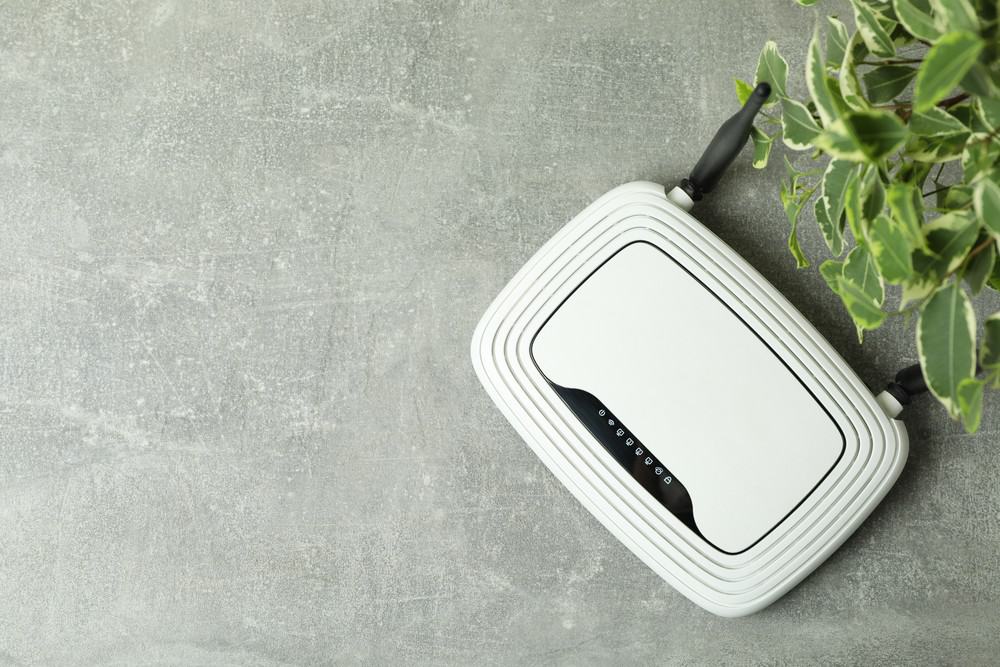
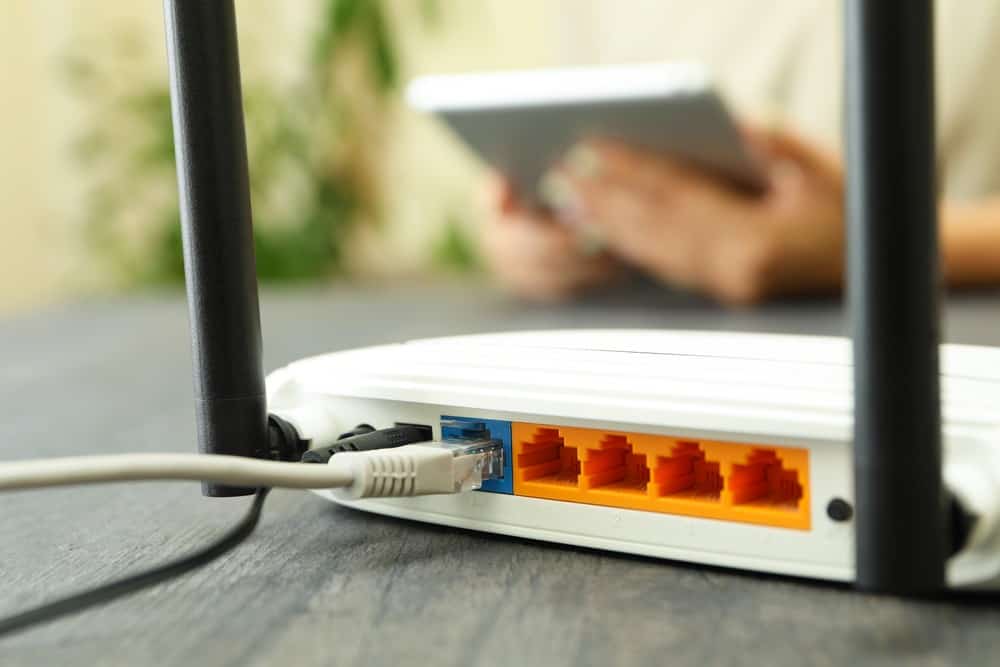
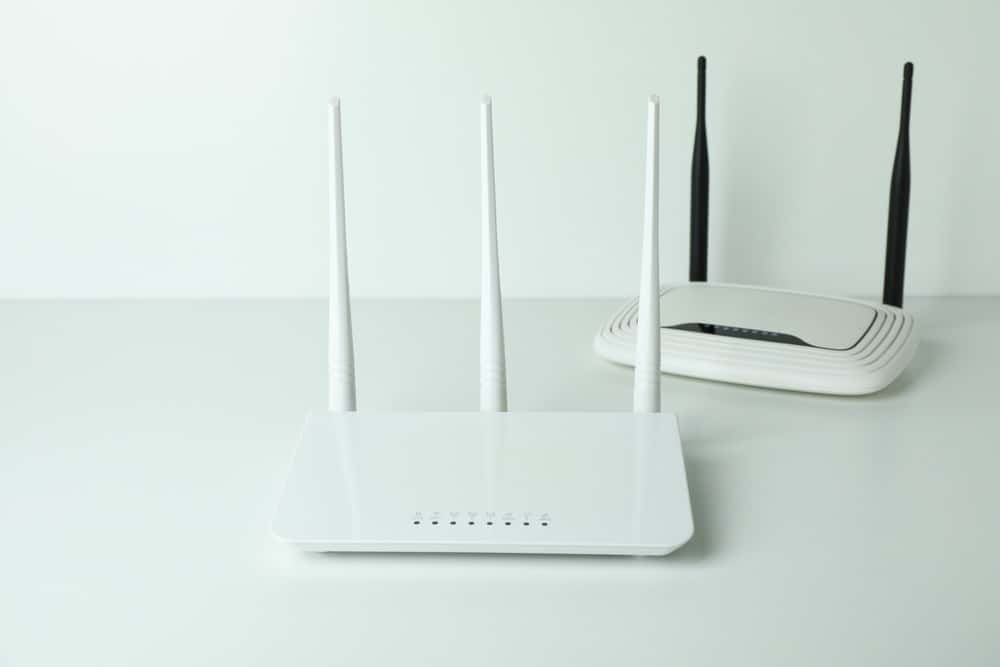





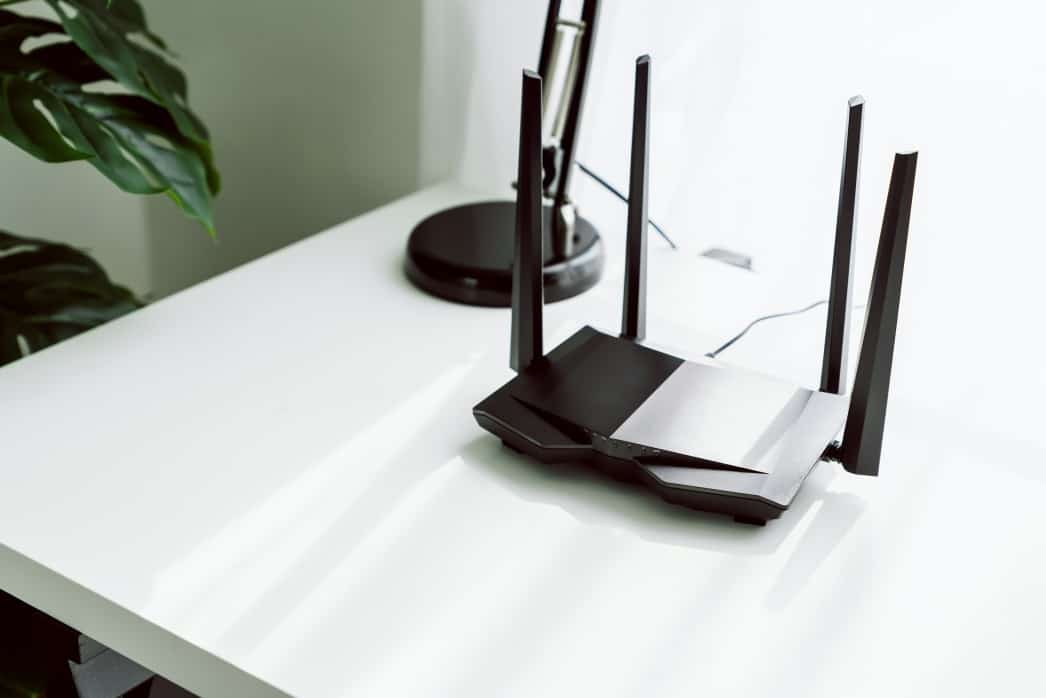
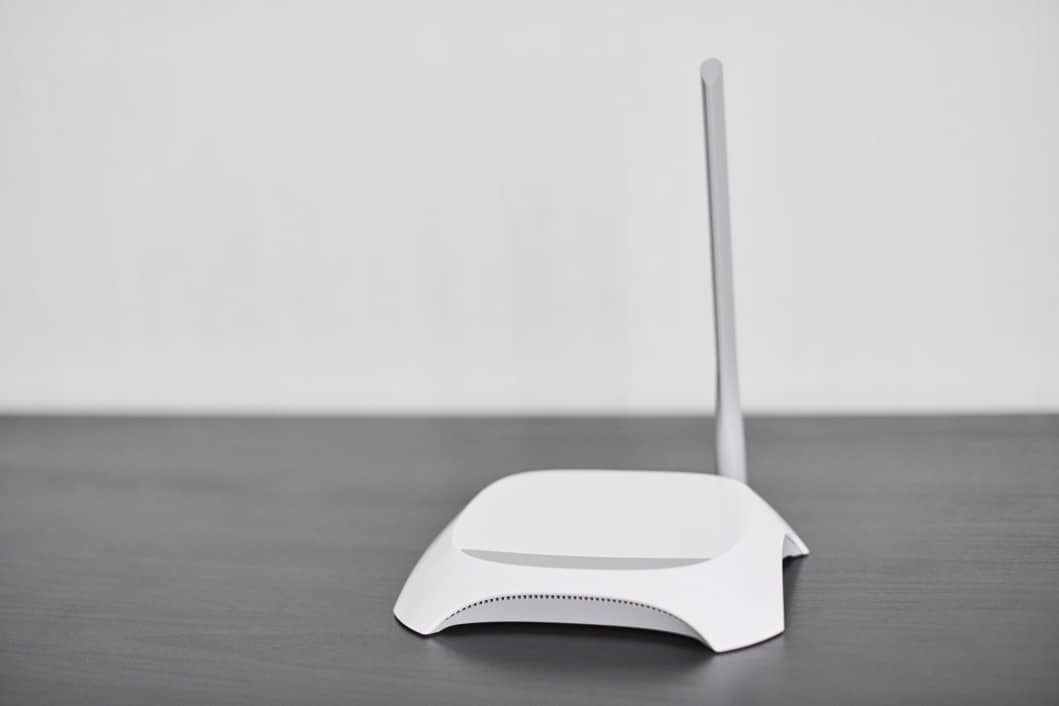



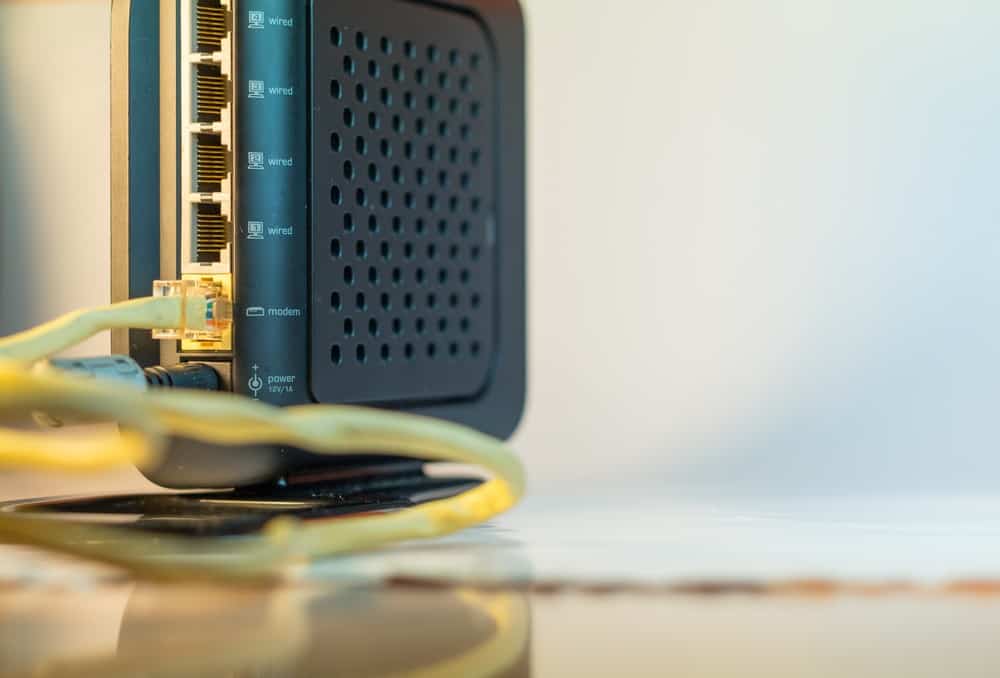

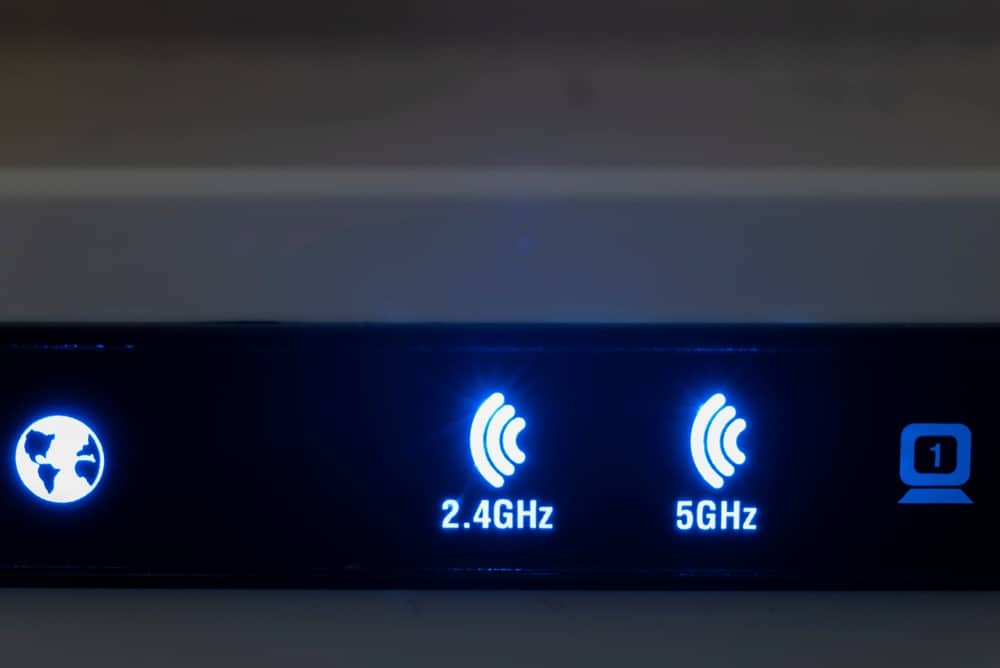

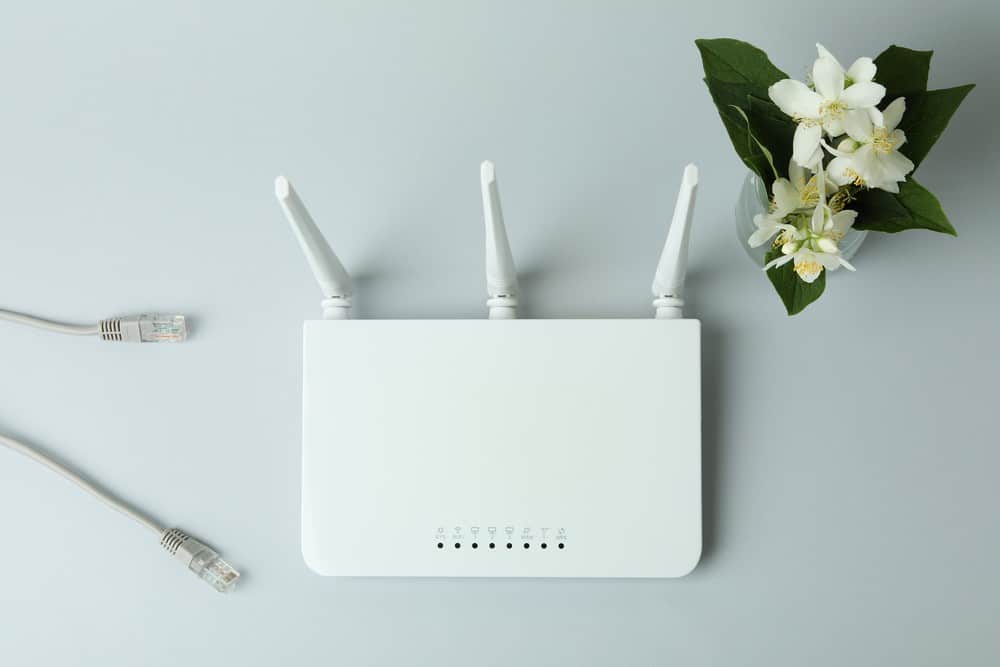
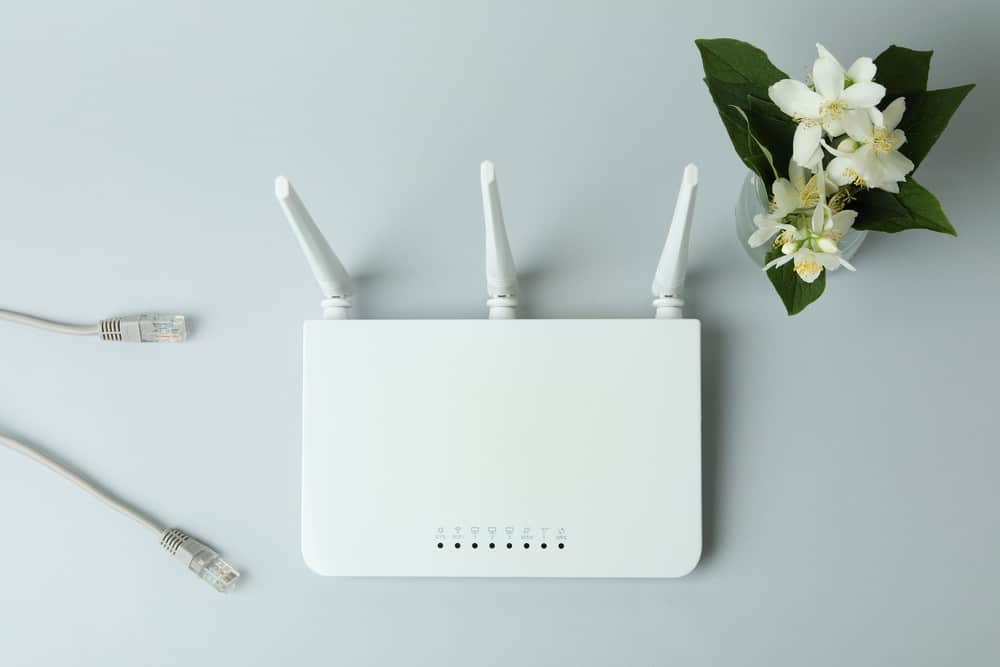

![Best BenQ Monitors in [year] 37 Best BenQ Monitors in 2026](https://www.gadgetreview.dev/wp-content/uploads/best-benq-monitor-image.jpg)
![Best Wifi Extenders For FiOS in [year] 38 Best Wifi Extenders For FiOS in 2026](https://www.gadgetreview.dev/wp-content/uploads/best-wifi-extender-for-fios-image.jpg)
![Best Fiber Optic Routers in [year] 39 Best Fiber Optic Routers in 2026](https://www.gadgetreview.dev/wp-content/uploads/best-fiber-optic-router-image.jpg)
![Best VoIP Routers in [year] 40 Best VoIP Routers in 2026](https://www.gadgetreview.dev/wp-content/uploads/best-voip-router-image.jpg)
![Best Routers for 200Mbps in [year] 41 Best Routers for 200Mbps in 2026](https://www.gadgetreview.dev/wp-content/uploads/best-router-for-200mbps-image.jpg)
![Best Routers for Optimum in [year] 42 Best Routers for Optimum in 2026](https://www.gadgetreview.dev/wp-content/uploads/best-router-for-optimum-image.jpg)
![Best Routers for Apple in [year] 43 Best Routers for Apple in 2026](https://www.gadgetreview.dev/wp-content/uploads/best-router-for-apple-image.jpg)
![Best Routers for Frontier FIOS in [year] 44 Best Routers for Frontier FIOS in 2026](https://www.gadgetreview.dev/wp-content/uploads/best-router-for-frontier-fios-image.jpg)
![Best Secure Routers in [year] 45 Best Secure Routers in 2026](https://www.gadgetreview.dev/wp-content/uploads/best-secure-router-image.jpg)
![Best Routers for Google Fiber in [year] 46 Best Routers for Google Fiber in 2026](https://www.gadgetreview.dev/wp-content/uploads/best-router-for-google-fiber-image.jpg)
![Best Routers for Cox in [year] 47 Best Routers for Cox in 2026](https://www.gadgetreview.dev/wp-content/uploads/best-router-for-cox-image.jpg)
![Best Asus Routers in [year] 48 Best Asus Routers in 2026](https://www.gadgetreview.dev/wp-content/uploads/best-asus-routers-image.jpg)
![Best Linksys Routers in [year] 49 Best Linksys Routers in 2026](https://www.gadgetreview.dev/wp-content/uploads/best-linksys-routers-image.jpg)
![Best Routers for CenturyLink in [year] 50 Best Routers for CenturyLink in 2026](https://www.gadgetreview.dev/wp-content/uploads/best-router-for-centurylink-image.jpg)
![Best Wired Routers in [year] 52 Best Wired Routers in 2026](https://www.gadgetreview.dev/wp-content/uploads/best-wired-router-image.jpg)
![Best Routers for 4K Streaming in [year] 53 Best Routers for 4K Streaming in 2026](https://www.gadgetreview.dev/wp-content/uploads/best-router-for-4k-streaming-image.jpg)
![Best Cisco Routers in [year] 54 Best Cisco Routers in 2026](https://www.gadgetreview.dev/wp-content/uploads/best-cisco-routers-image.jpg)
![Best eero Routers in [year] 55 Best eero Routers in 2026](https://www.gadgetreview.dev/wp-content/uploads/best-eero-routers-image.jpg)


